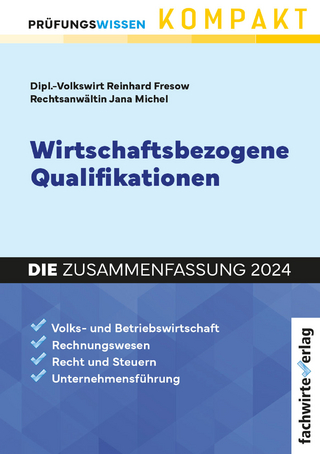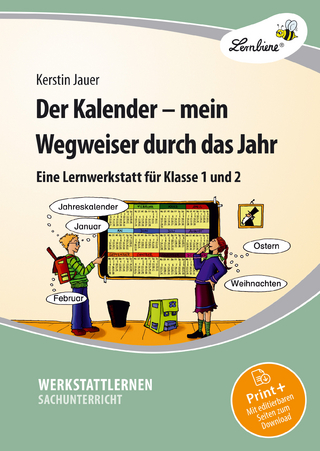
The Evolution of Artificial Intelligence in Higher Education
Emerald Publishing Limited (Verlag)
978-1-83549-487-5 (ISBN)
Chapters explore the practicality of AI tools in academia, such as ChatGPT, and analyse the main pedagogical implications and ethical dilemmas of AI adoption in higher education, including rethinking authorship, the potential homogenisation of content, ethical implications, transparency, reliability, and bias in AI-driven processes.
The Evolution of Artificial Intelligence in Higher Education presents a timely analysis of a new technological advancement with a significant impact to a diverse audience, including faculty, administrators, curriculum designers, students and policymakers who are navigating the rapidly evolving landscape of AI in education.
Miltiadis D. Lytras is a visiting researcher at Effat University. Dr Lytras is a world-class expert in the fields of digital transformation and technology-enabled learning. He is an expert in advanced computer science and management, editor, lecturer, and research consultant, with extensive experience in academia and the business sector in Europe and Middle East and Asia. Afnan Alkhaldi is Assistant Professor at the Arab Open University in Kuwait, renowned for her expertise in smart city development. As a consultant for Kuwait's Al-Hareer Smart City project, Alkhaldi leverages her innovative and efficient strategies to bolster economic development and urban planning. Sawsan Malik is Assistant Professor at the Arab Open University in Kuwait, specializes in transforming business plans into innovative business models, focusing on the informal economy and the entrepreneurial process. Her research extends to smart city development, emphasizing the role of digitalization in enhancing entrepreneurial ventures. Andreea Claudia Serban is Professor at the Department of Economics and Economic Policies, Faculty of Theoretical and Applied Economics, and Director of Doctoral School of Economics, Bucharest University of Economic Studies, Romania. Tahani Aldosemani is an Associate Professor of Educational Technology at Prince Sattam bin Abdulaziz University, Saudi Arabia, and a former Vice Dean of Information Technology and Distance Education.
Chapter 1. The AI landscape in Higher Education: Current Developments, Opportunities and Threats; Miltiadis D. Lytras, Afnan Alkhaldi, Sawsan Malik, Andreea Claudia Serban, and Tahani Aldosemani
Chapter 2. Integrating Artificial Intelligence in Higher Education: Enhancing interactive learning experiences and student engagement through ChatGPT; Marius Schönberger
Chapter 3. A Practical Study of Generative AI Tools for Higher Education Innovative Transformation; Daniel Borer, Esmira Hackenberg, Nick McIntosh, Aaron Lane, and Binh Nguyen Thanh
Chapter 4. Disrupting Education: Artificial Intelligence in Higher Education; Husa Alangari
Chapter 5. The Role of Artificial Intelligence in Designing Higher Education Courses: Benefits and Challenges; Ahmed A.M. Abdelkader, Hend Hassan, and Marwa Abdelkader
Chapter 6.Plotting the Parameter Scale: AI-Paved Academic Transformational Journey; Sarah Sidani and Rawan Hassoun
Chapter 7. Transforming Teaching Learning with Chatbots in Higher Education: Quest, Opportunities and Challenges for Quality Enhancement; Sohail Ahmad, Afaq Ahmed, Sadia Muzaffar Bhutta, and Aisha Naz Ansari
Chapter 8. Digital Transformation in Higher Education: Best Practices and Challenges; Nehme Azoury and Cynthia Hajj
Chapter 9. Τhe integration and development of AI (Artificial Intelligence) in Higher Education (HE): Challenges, innovations and recommendations for the academics; Chris Mantas, Sawsan Malik, and Vassilis Karapetsas
Chapter 10. Impact of Critical Thinking Approach on Learners' Dependence on Innovative Transformation through Artificial Intelligence; Sayeda Sapna Shah, and Muhammad Mujtaba Asad
Chapter 11. Impact of Artificial Intelligence (AI) in Addressing Students at Risk Challenges in Higher Education (HE); Omer Hag Hamid
Chapter 12. AI for Higher Education: Alternative ways of learning and risks; Nikolaos Chouzouris
Chapter 13. AI: Powering Sustainable Innovation in Higher Ed; Lavina Ramkissoon
Chapter 14. A Triadic Approach to Generative AI Solutions for Educators in Transforming Higher Education; Mei Kei Leong, Karen Tsen Mung Khie, Aqilah Yaacob, Thivashini B Jaya Kumar, and Thanuja Rathakrishnan
Chapter 15. The Evolution of Artificial Intelligence in Teaching and Learning of English Language in Higher Education: Challenges, Risks, and Ethical Considerations; Fareeha Javed
Chapter 16. Exploring the role of Generative AI tools among the undergraduates of HEIs in Sultanate of Oman; Samyuktha Paliathuparambil Suresh, Simi Simon and Santhosh Nithyananda
Chapter 17. Visioning the Future of Higher Education through Artificial Intelligence; Miltiadis D. Lytras, Afnan Alkhaldi, Sawsan Malik, Andreea Claudia Serban, and Tahani Aldosemani
| Erscheinungsdatum | 29.10.2024 |
|---|---|
| Reihe/Serie | Emerald Studies in Active and Transformative Learning in Higher Education |
| Verlagsort | Bingley |
| Sprache | englisch |
| Maße | 152 x 229 mm |
| Themenwelt | Schulbuch / Wörterbuch ► Unterrichtsvorbereitung ► Unterrichts-Handreichungen |
| Sozialwissenschaften ► Pädagogik ► Erwachsenenbildung | |
| ISBN-10 | 1-83549-487-0 / 1835494870 |
| ISBN-13 | 978-1-83549-487-5 / 9781835494875 |
| Zustand | Neuware |
| Haben Sie eine Frage zum Produkt? |
aus dem Bereich


